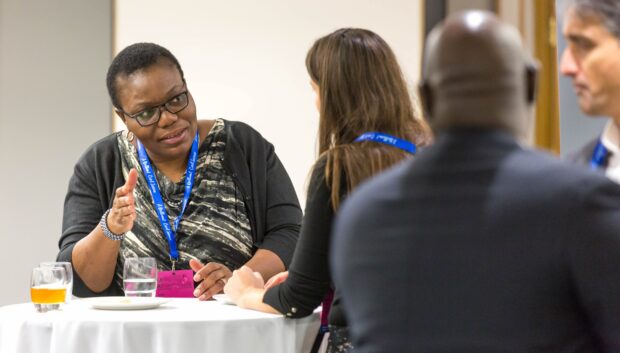
This question has been high on the agenda for the Policy Profession over the past few months. We know there is a lot of excellent work going on across the Civil Service, and yet our research shows us that people across the system want things to be different so they can deliver better and more meaningful results for citizens.
Policymakers have said what they need
In extensive research with hundreds of policymakers across the UK’s policymaking community, we identified 3 calls for change:
- policymakers want to take more responsibility for the way their work plays out in the real world; instead of being commissioned to manage a small part of a much bigger policy process, they want to work on big challenges that run from policy inception all the way through to delivery
- they want to use evidence more rigorously, which means a continuing focus on data, but also developing a deep understanding of the citizens that policy will affect; by understanding and engaging more rigorously, we can find better ways to deliver government priorities
- policymakers want to collaborate more, working in multidisciplinary teams that bring different perspectives and expertise into the process, but there was a strong sense in our research that this would only happen if the Civil Service itself becomes more diverse
None of this is news. If we had conducted this research a decade ago we might have heard similar messages. Many of the themes are echoed in the Civil Service reform agenda. But the fact that these challenges are so longstanding only strengthens the case for change.
The Policy Profession is changing, with a new host in the Department for Education (DfE), new leadership from Tamara Finklestein and Susan Acland-Hood, and much closer ties to Policy Lab and the Open Innovation Team. This gives us an opportunity to think about the role a small group of central teams can play in helping policymakers to experiment and innovate.
We should respond to what works
We have things to learn from the Strategy Unit, Delivery Unit and Behavioural Insights Team about how to encourage learning and change. We also have much to gain from working with the network of policy labs and multidisciplinary policy design teams that have been set up across government over the past few years.
Where are the handful of places across the system where we can support the best emerging ways of working so that they have a bigger impact? How do we safely test innovative policy making practices before taking them out of the lab and into the mainstream? How do we work differently with delivery systems such as local government and citizens themselves?
Our work programmes for 2021/22 includes some initial responses. We are creating a new policy transformation unit with an initial brief to mainstream multidisciplinary teams, systems thinking and citizen-centred design across government.
We are working with Policy Lab and others to look for the practices and techniques that will inform the next generation of policymaking. I’m particularly interested in mass participation platforms like Pol.Is, which has been used to crowdsource legislation in Taiwan. We want to highlight the many places in the UK’s government where promising multidisciplinary approaches are already being tested, such as Defra’s Future Farming programme.
Policymakers want to modernise their practice
Earlier this year a group of policymakers from across government described how they think their skills will need to change in the future:
- today - evidence, communication, navigating government
- tomorrow - systems thinking, technology solutions, long-term thinking, participative decision-making, place-based policymaking, policy design, strategic thinking/horizon scanning, flexibility, and crisis policymaking
- future - international learning and analysis, public participation and collaboration with users, inclusivity, technology developments, and use of tech for public participation
It’s a start, but transformation is a thing that only happens because people at the frontline want to be different. I hope this blog is a way of starting a broader conversation about what next generation policy making might look like.
Join our community
We use this blog to talk about the work of the multidisciplinary policy design community. We intend to share more stories about our work, the thinking behind it and what policymaking might look like in the future. If you would like to read more, then please sign-up for updates. Join the conversation by commenting below.
2 comments
Comment by Paul Frainer posted on
Great to see this coming forward... nice work Simon and team, shout me if you want some thoughts on localgov place and economic policy 👍
Comment by Andrew Knight posted on
Hi Paul - we're really keen to work with people in local government. We'll get in touch to talk about how you might join the community.